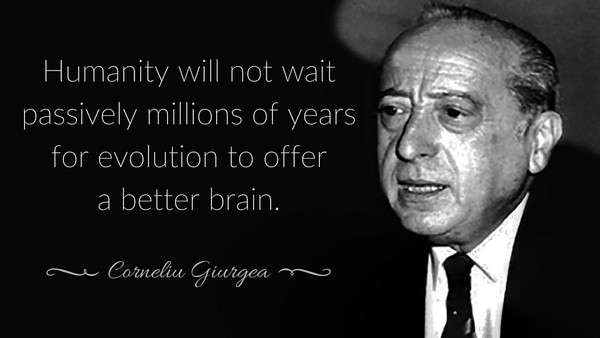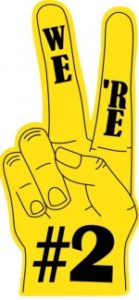Corneliu Giurgea was a Romanian scientist who many believe is the father of brain pharmacology and mental performance research. Back in 1972, he coined the term nootropic.
Now, more than four decades later, no one can claim for certain that his nootropic discoveries, or the ones that followed his initial research, actually work.
There have been any number of intelligent people throughout history—even before Giurgea and nootropics—who achieved great things without supplements. There were also plenty of not-so-bright people who landed important and successful positions with a bit of odd luck. Nothing has changed today.
But, can nootropics give you an edge? Can supplements really keep your brain sharp? Can you really become successful and admired, just by taking one pill in the morning a half an hour before breakfast? We have answers.
Table of Contents
There is lots of hype out there and labels aren’t everything that they should be. When someone advertises brain supplements and throws the word “Harvard” onto the packaging, you shouldn’t assume that you will automatically be summoned by Mensa International, post-ingestion.
There are hundreds of supplements on the market today—all of which “guarantee” a brain boost. These brain supplements claim to help improve memory, mood, clarity and focus and to also protect against mental decline, depression, anxiety and dementia.
However, none is proved to provide the long-term desired (or advertised) results. While the positive claims are unproven, these supplements may have immediate, if fleeting, effects. For example, a similar effect that could equally be produced by alcohol, energy drinks and recreational drugs.
Download a cheat sheet of this post.
No study, and no research, has definitively determined that supplements and nootropics will give you what you are hoping for. No product has proven that it makes you smarter. That being said, some studies have found that participants who expected to receive a brain boost reported better focus, regardless of whether they were given the drug or a placebo.
Disappointing as it may be to hear that there isn’t a magic pill that will turn you into a genius, many studies agree that taking the right supplements can improve your brain health and function, and may protect against mental decline in the future.
So, with a pool of hundreds of individual nutrients to choose from and thousands of combinations of ingredients, choosing the right supplement depends on the results one is looking for. If you think taking a supplement is right for you, should ask yourself some important questions:
- Are you looking to improve your memory or increase your concentration?
- Is your biggest concern reversing or preventing mental decline as you age?
- Are you stressed out, depressed or anxious?
Still, this is your brain we’re talking about here and your brain is not something you want to experiment on. Many nootropics available on the market today have ingredients such as caffeine and ephedrine, which will certainly have an effect on your brain—it’s just that the effect isn’t always positive. You should think twice before making a decision about whether or not these substances are worth the risks.
Many natural nootropic supplements fit the bill as being neuroprotective and safe, with few side effects. However, the same can’t be said for brain-enhancing drugs. Unfortunately, our biggest concern here is that this is an unregulated business.
There is no regulation of the use of the term, “nootropic”, so anything can be sold under that name. The ingredients could include almost anything. It’s equally concerning that almost any claim can be made as to their effectiveness. A special caution for you youngsters out there: these drugs can be particularly harmful for people under age 25, since your brains are not yet fully developed.
On Google search, the first couple of pages are filled with dozens of products claiming to be the “No 1 brain supplement”. Of course, they can’t all really be number one, but, like the absent regulations on their product and packaging, so too are the regulations lacking when it comes to their claims.
Apparently, they’re all number one. Which makes a bit of marketing sense, because no one would advertise that they are number two.
Most of these number 1 brain supplements contain drugs often prescribed for ADHD, sleep disorders and depression. If you look at the ingredients of some of the top, “#1 brain supplements”, you will see ingredients such as:
- Forskolin, which has no proven benefits in oral form and in which contraindications are yet unknown
- L–Theanine, which is found in green tea (we recommend you just grab a cup instead)
- Acetyl–L–Carnitine, an amino acid used in the production of energy. It’s been linked to an increase in seizures in those who have seizures already and can interfere with thyroid hormones. It also significantly boosts the effect of blood thinners, such as Wafarin and Sintrom, so never take a product that contains this ingredient without first checking with your physician.
- Phenylalanine, an amino acid found in nuts and legumes. We recommend you go straight to the source on this one and grab a handful of nuts.
- Brahmi, this is plant-derived and may have properties that can help protect against Alzheimer’s and may improve memory. Brahmi may slow down your heart beat and may exacerbate some existing lung problems. One possible side effect is fatigue, so you might be trading one positive effect for a negative one.
- Huperzine A, a highly purified drug that is closer to a synthetic rather than the plant-derivative or herb that it is typically touted as. There are a few studies out there that show it may improve memory for those who have memory problems. It may improve memory function in people with Alzheimer’s, but, for your everyday Joe, no proof exists that Huperzine A will contribute anything of value. It can slow your heart rate and most experts agree that there are safety concerns when taking it longer than three months at a time.
Of course, you never really know if those items are in the supplement or not. Even if it does contain the right ingredients (and in the right quantities), all of those brain-enhancing drugs, which are often used by students, bodybuilders, politicians and businessman, come with side effects. Short-term side effects include, but are not limited to, insomnia, nausea, anxiety, nervousness, hypertension, decreased appetite and weight loss. Some users report headache and withdrawal, as well.
Because of the side effects, natural nootropics are growing in popularity, as more and more people express a preference for herbal supplements. As the herbs go, a lot of recent research has focused on
- Ginkgo biloba, the leaf of the ginkgo tree, which is particularly interesting to researchers because of its potential to treat Alzheimer’s disease and age-related mental decline.
- Gotu kola, a potential age-related mental therapy that is said to boost brain power in general, but is often used to lower stress.
- Curcumin, the most potent active ingredient in the Indian spice turmeric. Research shows that this may have a positive effect on Alzheimer’s Disease.
- Some studies also showed that smelling rosemary is proven to improve speed and accuracy when performing certain mental tasks.
Beyond herbs, a number of nutrients may work as brain boosters, such as the omega-3 fatty acid found in fish oils.
Still, all of those are useless without the main supplement: knowledge. The brain, like all other organs and muscles, will not operate properly, unless being challenged and exercised. If one fails to educate themselves, broaden their knowledge or at least read, from time to time, a fistful of walnuts will not help, although it will be an excellent source of anti-inflammatory omega-3 essential fatty acids and rich in vitamin E, folate and melatonin.
The bottom line is that all of these “smart drugs” will not make you smarter. It’s possible that they may make you think you’re performing better, although a beer and even some recreational drugs may well do the same. In fact, many studies concluded that brain supplements impair rather than boost mental performance.
We strongly advise caution when choosing any brain supplement. Remember that these products are not regulated. The ingredients listed on the package may not accurately reflect what’s inside and any brain supplement should be reviewed by your physician before you take it.

